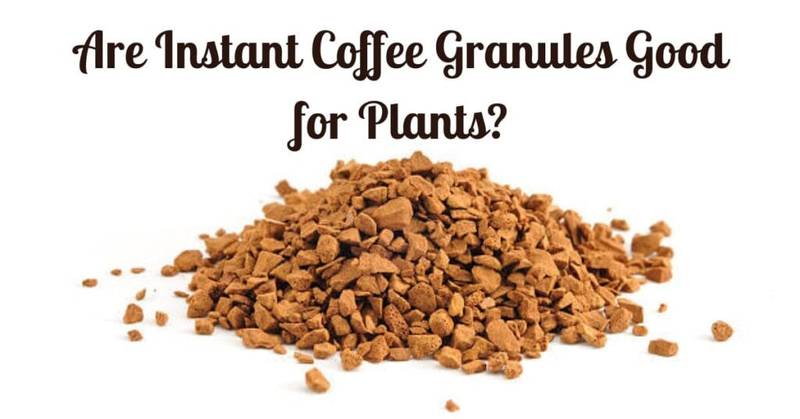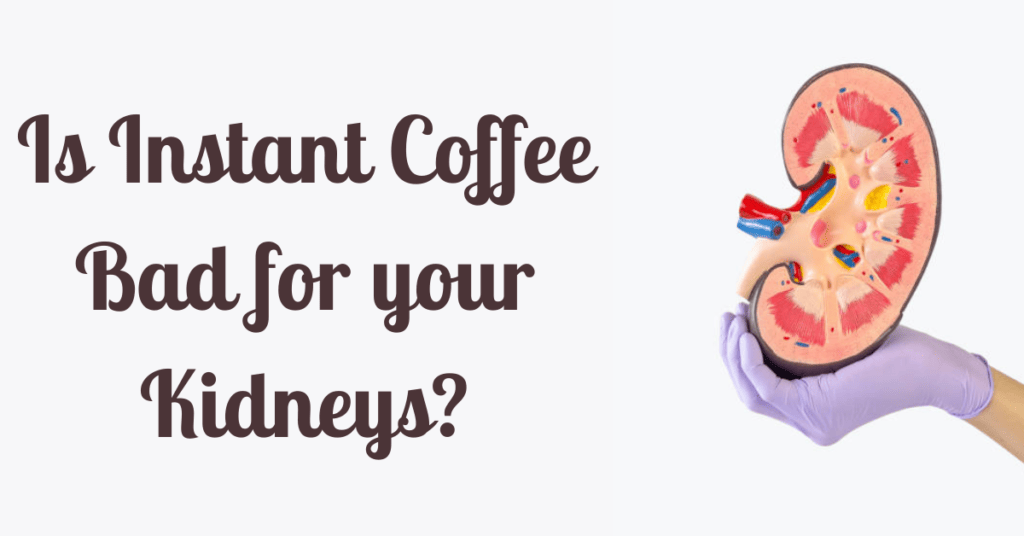In the realm of morning rituals and caffeine cravings, instant coffee holds a significant place for its convenience and quick fix.
However, as much as we relish that instant jolt of energy, there’s an underlying concern that often lingers in the minds of coffee enthusiasts: does instant coffee stain teeth?
While many of us have heard anecdotes or warnings about the potential dental repercussions of our beloved brew, the reality behind these claims warrants a closer look.
Understanding the impact of instant coffee on dental health is essential for navigating health risks effectively.
Instant coffee, with its rich color and intense flavor, may indeed leave traces on your teeth, raising concerns about staining.
But does this popular beverage truly pose a significant threat to your dental aesthetics?
Exploring the scientific evidence behind these assertions can provide clarity and equip you with the knowledge needed to make informed decisions about your coffee consumption habits.
Let’s delve into this topic to uncover the truth about does instant coffee stain teeth and its effects on dental health.
As an affiliate site, we are associated with the amazon. We might receive a commission when you use links or recommendations on our website to make qualified purchases. The cost you pay for the goods or services is unaffected by this.
Table of Contents
Does Instant Coffee Stain Teeth || 10 Scientific Evidence

For avid coffee drinkers, the morning ritual of savoring that first cup of coffee is practically sacrosanct.
However, beneath the surface of this beloved beverage lies a lingering question: does instant coffee stain teeth?
While anecdotal evidence abounds, understanding the scientific research behind this phenomenon is crucial for discerning fact from fiction.
1. Acidity Levels
Instant coffee, like other coffee varieties, is acidic in nature. This acidity can lead to the weakening of tooth enamel, the protective outer layer of teeth.
When enamel is weakened, it becomes more susceptible to damage and staining from other sources, such as pigmented foods and beverages.
2. Tannin Content
Tannins are natural compounds found in various plant-based foods and beverages, including coffee.
They have astringent properties and can bind to proteins, including those present in tooth enamel.
This binding can result in the formation of stains on the teeth, particularly when combined with other staining agents.
3. Chlorogenic Acid
Chlorogenic acid is a prominent component of coffee, including instant coffee. Research suggests that this acid can contribute to enamel erosion over time.
As enamel erodes, the underlying dentin, which is naturally more yellow in color, becomes more visible, leading to tooth discoloration.
4. Pigment Concentration
Instant coffee is often more concentrated than brewed coffee, containing a higher concentration of pigments that give it its characteristic color.
When consumed, these pigments can adhere to the tooth surface more readily, increasing the likelihood of staining, especially if oral hygiene practices are inadequate.
5. Temperature Sensitivity
Hot beverages like instant coffee can cause temporary changes in the structure of tooth enamel. When exposed to heat, enamel expands, and when cooled, it contracts.
This cycle of expansion and contraction can create microscopic openings in the enamel, making it more porous and susceptible to staining from pigmented substances.
6. Surface Roughness
The granules present in instant coffee can create a gritty texture that may roughen the surface of teeth.
This roughness provides additional surface area for pigments to adhere to, increasing the potential for staining over time, especially if thorough oral hygiene practices are not followed.
7. Extrinsic Staining
Extrinsic stains occur on the outer surface of the tooth enamel and are often caused by external factors such as food, beverages, and tobacco use.
Studies have shown that frequent consumption of instant coffee can contribute to the development of extrinsic stains, particularly if the coffee is consumed without adequate rinsing or oral hygiene practices.
8. Dietary Habits
The cumulative effect of dietary habits, including the consumption of instant coffee alongside other staining foods and beverages, can increase the risk of tooth staining.
For example, consuming instant coffee along with highly pigmented foods like berries or sauces can intensify the staining effect on teeth.
9. Toothbrush Abrasion
Brushing immediately after consuming instant coffee can potentially exacerbate staining.
The abrasive action of brushing, especially when combined with abrasive toothpaste, can spread coffee pigments across the tooth surface before they have a chance to fully adhere, increasing the risk of staining.
10. Enamel Permeability
Instant coffee consumption has been associated with increased enamel permeability.
When enamel becomes more permeable, it allows pigmented substances from foods and beverages to penetrate more easily into the tooth structure, leading to deeper and more persistent staining over time.
Does Instant Coffee Stain Teeth || Pros and Cons

In the daily grind of life, instant coffee stands as a beacon of convenience and caffeine.
Yet, as we indulge in our morning pick-me-up, the question lingers: Does instant coffee stain teeth?
Understanding both the advantages and drawbacks of this beloved beverage is crucial for making informed choices about our dental health.
Pros of Instant Coffee
1. Convenience
Instant coffee’s greatest advantage lies in its convenience.
With just a spoonful and hot water, you can enjoy a piping hot cup of coffee within seconds, making it a go-to option for busy mornings or when brewing equipment is unavailable.
2. Long Shelf Life
Instant coffee boasts an impressively long shelf life compared to its brewed counterparts.
Sealed in airtight packaging, it can remain fresh for extended periods, ensuring that you always have a quick caffeine fix on hand.
3. Cost-Effective
In terms of affordability, instant coffee often reigns supreme. Its lower production costs and longer shelf life translate to a more budget-friendly option for coffee enthusiasts on a tight budget.
4. Customizable Flavors
Instant coffee comes in a variety of flavors and blends, catering to diverse taste preferences. Whether you prefer a bold espresso or a creamy latte, there’s an instant coffee option to suit your palate.
5. Reduced Risk of Staining
Unlike brewed coffee, instant coffee is often less prone to causing stains due to its lower acidity and reduced tannin content.
When consumed in moderation and paired with proper oral hygiene, instant coffee may have minimal staining effects on teeth.
Cons of Instant Coffee
1. Inferior Taste
While convenient, instant coffee typically lacks the depth and complexity of flavor found in freshly brewed coffee.
The instant manufacturing process often involves freeze-drying or spray-drying coffee concentrate, which can compromise its taste and aroma.
2. Limited Nutritional Value
Instant coffee may provide a quick caffeine boost, but it offers little in terms of nutritional value.
Compared to freshly brewed coffee, which contains antioxidants and beneficial compounds, instant coffee pales in comparison.
3. Environmental Impact
The production of instant coffee involves energy-intensive processes such as freeze-drying and packaging, contributing to its environmental footprint.
Additionally, single-serving packaging generates plastic waste that can harm the environment if not properly disposed of.
4. Potential Health Risks
While moderate consumption of instant coffee is generally considered safe, excessive intake can lead to health issues such as increased heart rate, insomnia, and digestive problems.
Additionally, some instant coffee brands may contain additives or preservatives that could have adverse effects on health.
5. Dental Concerns
Despite its lower staining potential compared to brewed coffee, instant coffee can still contribute to tooth discoloration, especially when consumed frequently or in large quantities.
The acidity and pigments present in instant coffee can gradually stain the enamel, affecting the appearance of teeth over time.
Proper oral hygiene practices, including regular brushing and dental check-ups, are essential for mitigating the staining effects of instant coffee on teeth.
Instant Coffee Consumption Habits || 7 Facts

In the fast-paced world of modern living, instant coffee has emerged as a beloved companion for countless individuals seeking a quick caffeine fix.
Yet, amidst the convenience and allure of this beverage, a pressing question remains: Does instant coffee stain teeth?
To delve into this inquiry, it’s essential to explore the consumption habits surrounding instant coffee, shedding light on how they may impact dental health.
1. Frequency of Consumption
For many, instant coffee serves as a daily ritual, often consumed multiple times throughout the day.
Whether it’s a morning wake-up call or an afternoon pick-me-up, habitual consumption habits can significantly influence the potential for tooth staining.
2. Serving Size
Instant coffee offers flexibility in serving size, allowing individuals to customize their caffeine intake according to their preferences.
However, larger serving sizes or frequent refills may increase the exposure of teeth to coffee pigments and acidity, potentially heightening the risk of staining.
3. Preparation Methods
How instant coffee is prepared can also impact its staining potential. Diluting coffee with hot water or milk may reduce its acidity, minimizing the risk of enamel erosion and staining.
Conversely, adding sugary syrups or creamers can introduce additional factors that contribute to dental discoloration.
4. Timing of Consumption
The timing of instant coffee consumption can influence its interaction with tooth enamel.
Drinking coffee immediately upon waking or before brushing can expose teeth to acidic compounds when enamel is most vulnerable, potentially exacerbating staining effects.
5. Oral Hygiene Practices
Personal oral hygiene habits play a crucial role in mitigating the staining effects of instant coffee.
Regular brushing, flossing, and rinsing with water after consuming coffee can help remove surface stains and prevent pigments from adhering to tooth enamel.
6. Duration of Exposure
Prolonged exposure to instant coffee, such as sipping slowly over an extended period or allowing coffee residue to linger on teeth without rinsing, can increase the likelihood of staining.
Minimizing the duration of exposure and practicing mindful consumption can help reduce the risk of dental discoloration.
7. Consumption alongside Staining Agents
Pairing instant coffee with foods or beverages known to cause dental staining, such as dark-colored fruits, red wine, or tea, can intensify the staining effects on teeth.
Being mindful of dietary choices and balancing consumption of staining agents can help mitigate the cumulative impact on dental aesthetics.
By understanding and modifying instant coffee consumption habits, individuals can proactively address potential staining concerns while still enjoying the convenience and flavor that instant coffee has to offer.
Balancing moderation, proper oral hygiene, and awareness of dietary factors can help preserve dental health and minimize the risk of tooth discoloration associated with instant coffee consumption.
Mitigating Staining Risks || Oral Hygiene Practices

As we navigate the realms of dental hygiene and beverage consumption, understanding how to mitigate the risks associated with tooth staining becomes paramount.
Among the myriad factors influencing dental discoloration, instant coffee often finds itself under scrutiny.
Delving deeper into preventive measures, let’s explore how to mitigate staining risks associated with instant coffee consumption.
MMaintaining optimal oral hygiene is crucial in safeguarding against the staining effects of instant coffee on teeth.
By adopting proactive measures, individuals can minimize the accumulation of stains and preserve their dental aesthetics.
1. Regular Brushing
Consistent brushing, ideally after each meal or beverage consumption, helps remove surface stains and prevent the buildup of pigmented residues from instant coffee.
Using a fluoride toothpaste with whitening properties can enhance stain removal efficacy.
2. Flossing
Flossing plays a complementary role in oral hygiene by removing plaque and food particles lodged between teeth, areas often overlooked by brushing alone.
By eliminating potential staining agents from interdental spaces, flossing contributes to overall stain prevention.
3. Rinsing with Water
After consuming instant coffee, rinsing the mouth with water can help neutralize acidity and wash away residual coffee particles.
This simple practice reduces the contact time between coffee pigments and tooth enamel, minimizing the risk of staining.
4. Using a Straw
When feasible, drinking instant coffee through a straw directs the beverage away from direct contact with the teeth, reducing the exposure of enamel to staining agents.
Opting for a reusable or biodegradable straw promotes eco-conscious practices alongside dental health.
5. Chewing Sugar-Free Gum
Chewing sugar-free gum stimulates saliva production, which aids in the natural remineralization of enamel and helps wash away food debris and stains.
Look for gum containing xylitol, a sugar substitute known for its dental benefits.
6. Limiting Consumption Frequency
Moderating instant coffee consumption frequency can mitigate the cumulative effects of staining over time.
Enjoying occasional coffee breaks rather than continuous sipping reduces prolonged exposure of teeth to coffee pigments and acidity.
7. Professional Dental Cleanings
Regular dental check-ups and cleanings by a qualified dental professional are essential for maintaining oral health and managing staining risks.
Professional cleanings remove stubborn stains and plaque buildup, restoring dental aesthetics.
8. Whitening Treatments
In cases where stains have already formed, professional teeth whitening treatments offer an effective solution for restoring a brighter smile.
Consultation with a dentist can determine the most suitable whitening approach based on individual needs and preferences.
By integrating these oral hygiene practices into daily routines, individuals can proactively safeguard against the staining effects of instant coffee and maintain a radiant smile.
Coupled with mindful consumption habits, these measures contribute to long-term dental health and aesthetics, ensuring that the joy of coffee indulgence is accompanied by a confident smile.
FAQs || Does instant coffee stain teeth?
Does instant coffee make your teeth yellow?
Yes, instant coffee can contribute to teeth yellowing due to its high acidity and tannin content, which can gradually erode enamel and lead to discoloration over time. Additionally, the pigments present in instant coffee can adhere to tooth surfaces, further intensifying the yellowing effect.
What type of coffee doesn’t stain teeth?
Coffee types with lower acidity and lighter pigmentation, such as light roast or blonde roast coffee, are less likely to stain teeth compared to darker roasts. Additionally, consuming coffee through a straw or rinsing the mouth with water afterward can help minimize staining effects.
How can I drink coffee without staining my teeth?
To minimize staining, drink coffee with a straw to reduce contact with teeth, or rinse your mouth with water after consumption to wash away pigments. Additionally, consider using a whitening toothpaste and maintaining regular dental hygiene practices to prevent and reduce stains.
Is instant coffee bad for your teeth?
Instant coffee’s high acidity and pigmentation can potentially contribute to enamel erosion and tooth staining over time, but moderation and proper oral hygiene can help mitigate these effects. Additionally, drinking instant coffee with water or milk can dilute its acidity and reduce its impact on dental health.
Conclusion
In conclusion, while instant coffee offers convenience and flavor, its potential to stain teeth underscores the importance of proactive dental care.
By embracing oral hygiene practices such as regular brushing, flossing, and rinsing with cold water, individuals can mitigate the staining risks associated with instant coffee consumption.
Additionally, mindful consumption habits, including limiting frequency and using preventive measures like straws, contribute to preserving dental aesthetics.
Ultimately, understanding how to navigate the effects of instant coffee on dental health empowers individuals to enjoy their favorite brew while safeguarding the brilliance of their smiles.
Does instant coffee stain teeth? With diligence and care, the answer need not be a cause for concern.







